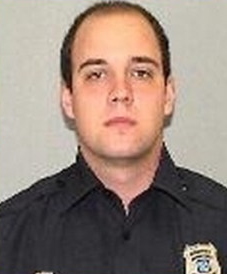
The Tennessee Bureau of Investigation (TBI) will be handling the case of Wednesday night’s officer-involved shooting of a man following a police chase. The man, who Memphis Police officers say aimed a weapon at them, was killed, and another man is on the run.
Last October, the Memphis Police Department (MPD), the Shelby County Sheriff’s Office, and the Shelby County District Attorney’s office signed a memorandum of understanding with the TBI to allow the state agency to investigate officer-involved shootings. That agreement came after Memphis Police officer Conner Schilling shot and killed Darrius Stewart, who was unarmed, during a traffic stop last year. Under state law, all TBI investigations are sealed.
On Wednesday evening, two MPD officers shot and killed a man whom friends and family have identified as 32-year-old Johnathan Bratcher. The TBI has not yet released the man’s identity. Around 3 p.m. yesterday, two police vehicles tried to pull over a man driving a Chevy Impala near Trezevant and Lowell. But the driver did not stop, and police pursued the car in the direction of South Parkway and Mississippi Boulevard. At that intersection, the Impala crashed into other cars and then ran over a curb at St. Andrew A.M.E. Church. The driver and passenger jumped out of the car and attempted to run away.
The two Memphis police officers, who have not been identified, and an unidentified Shelby County Sheriff’s officer tried to chase then men. That’s when one of the men allegedly pointed a gun at the officers and was then shot and killed by police. The other man remains at large as of Thursday morning. One of the Memphis Police officers was white and the other black. The man who was shot was black.
Mayor Jim Strickland’s office released the following statement Wednesday afternoon: “I have been made aware of an officer-involved shooting today. However, TBI is the lead agency investigating. I am not at liberty to discuss the details of this case. This is a reminder of the dangers our officers face on a daily basis, even on something as routine as a traffic stop.”




 Jiri Hera | Dreamstime.com
Jiri Hera | Dreamstime.com